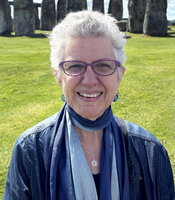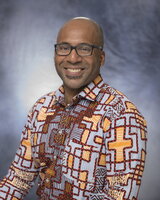
World history has enjoyed renewed popularity in recent years, largely because economists, sociologists, anthropologists, historians, and other students of "globalization" are increasingly interested in how areas of the globe that were once thought to be distinct have actually been interconnected for a very long time. This field engages these currents by encouraging graduate students to think beyond familiar boundaries, to identify multi-sited research projects, and to design pedagogically meaningful syllabi for teaching world history. The core problems course as well as the related graduate courses in a variety of fields support a conceptualization of world history that spans the pre-modern and modern periods, without accepting as a given their conventional chronological distinction. Courses in the field also cross East-West and North-South divides, working against facile national or continental categories.
As with all historical fields, world history has a particular genealogy. The contemporary fascination with "the global" shares methodological concerns with comparative and international history and relates to themes of colonialism, postcolonialism, and empire. But world history goes beyond these fields to help us understand both the specificity and origins of our own global moment and to visualize the variety of terrains in which transnational influences have shaped social, political, economic, cultural, and other developments. Understanding points of connection and divergence across time and space both complicates and enriches our attempts to historicize the human experience.
A major or minor in this field prepares students to think beyond conventional borders, study the complex interactions between different parts of the world, and historicize the structures of power that have fostered conflict and violence world-wide. It also furthers an understanding of the intermixture and fusion of cultural forms and practices across local and regional borders. Courses in the field raise questions about the boundaries between "East-West," "North-South," and "local-global" by exploring the multiple and interconnected histories between them and the intricate ways in which their connections have constantly been mediated and translated by regional structures and relations.
Despite the fact that the nation and the nation-state have long dominated historical writing and thinking, especially though not exclusively in the modern west, historians of many different interests have countered these narratives with more transnational -- if not global – scholarship. Related fields in the history department that support this field include the histories of colonialism and postcolonialism, the history of science, environmental history, international relations history, gender and women's history, labor history, and cultural history. Our strong area studies programs (in Africa, Latin America, Russia, Eastern Europe, and Eurasia, the Middle East and South Asia, and East Asia) as well as our U.S. ethnic studies programs (Afro-American, Latino-Latina, Asian-American, Native American), Gender and Women’s Studies program, and Institute for Communications Research are equally important sites for interdisciplinary work, given their long-standing engagement with transnational problems and themes.
Other Resources
History Faculty working in Global











Related News
